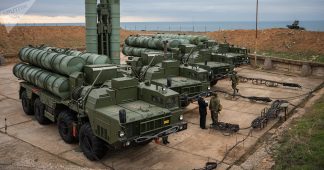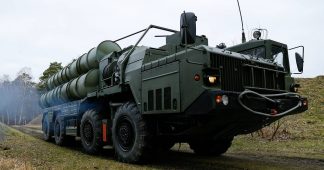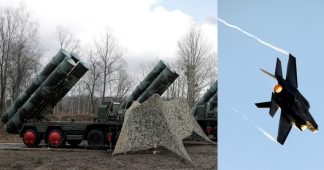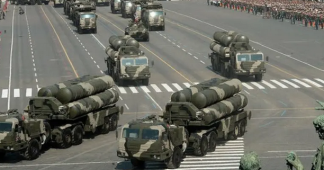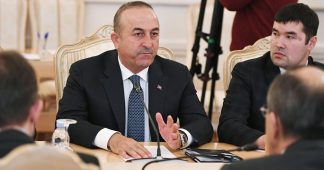by Ilya Tsukanov
Dec. 14, 2020
Earlier Monday, the US Treasury introduced sanctions on four Turkish officials and the Presidency of Defence Industries, the Turkish government office responsible for strengthening national security and managing the supply of military technology, over Ankara’s purchase of Russia’s S-400 air defence system.
Turkey “condemns and rejects” Washington’s decision to slap sanctions on its defence officials and the Presidency of Defence Industries over Ankara’s purchase of a Russian-made air defence system, and reserves the right to respond, even this means worsened relations with Washington, the Turkish Foreign Ministry has announced.
Turkey, the ministry said, will “take the necessary steps gainst this decision, which will inevitably have a negative impact on our relations. Furthermore, Turkey will not refrain from taking measures it considers necessary to ensure its national security.”
The ministry did not specify what these measures may entail.
Ankara also rejected the US justification for the sanctions in relation to the threat supposedly posed to NATO by its S-400s, suggesting such claims have no basis in reality.
“Turkey had proposed the creation of a technical working group with NATO’s participation, and has repeatedly proposed resolving this issue on an objective and realistic basis, without political bias. We invite the United States to reconsider this unfair decision,” the ministry indicated.
US Slaps Sanctions on Turkey, Says It’s Still ‘A Valued Ally’
Earlier in the day, while announcing the Treasury’s new S-400-related sanctions on Ankara, Secretary of State Mike Pompeo assured Turkey that it remains an important ally to the US, and expressed hope that that the country would take steps to resolve the disagreement by getting rid of its S-400s.
“I also urge Turkey to resolve the S-400 problem immediately in coordination with the United States. Turkey is a valued Ally and an important regional security partner for the United States, and we seek to continue our decades-long history of productive defence-sector cooperation by removing the obstacle of Turkey’s S-400 possession as soon as possible,” Pompeo said in a statement.
Turkey, Pompeo added, had been warned repeatedly “at the highest levels” that “its purchase of the S-400 system would endanger the security of US military technology and personnel and provide substantial funds to Russia’s defence sector, as well as Russian access to the Turkish armed forces and defence industry.”
The secretary suggested that Turkey moved forward with purchasing and testing S-400s “despite the availability of alternative, NATO-interoperable systems to meet its defence requirements.” This decision, Pompeo recalled, earlier prompted the US to kick Turkey out of the F-35 programme.
Sanctions Illegitimate, Arbitrary, Russia Says
Russian Foreign Minister Sergei Lavrov chimed in on the matter later Monday, saying Moscow did not find the sanctions surprising.
“This is, of course, another manifestation of an arrogant attitude towards international law, a manifestation of illegitimate, unilateral coercive measures that the United States has been using for many years, already decades, left and right,” Lavrov said, speaking to reporters during a visit to Bosnia.
Turkey’s decision to purchase S-400 contributed to a sharp decline in Turkish-US relations, with the US booting Turkey out of the F-35 programme in mid-2019, and later warning that there would be “serious consequences” for the “security relationship” between Washington and Ankara if Turkey continued to proceed with its S-400 testing activities.
Russia and Turkey inked a $2.5 billion S-400 contract in late 2017, with Moscow offering Ankara a lucrative credit deal as Washington stalled on the sale of the latest generation of Patriot missile systems to its NATO ally.
US officials have generally refrained from specifying what it is about the S-400 that makes it a danger to NATO jets, including the new F-35, although observers have suggested that the spat may be connected to the S-400’s suspected ability to find out the $1.5 trillion jet’s potential design flaws.
Published at sputniknews.com
